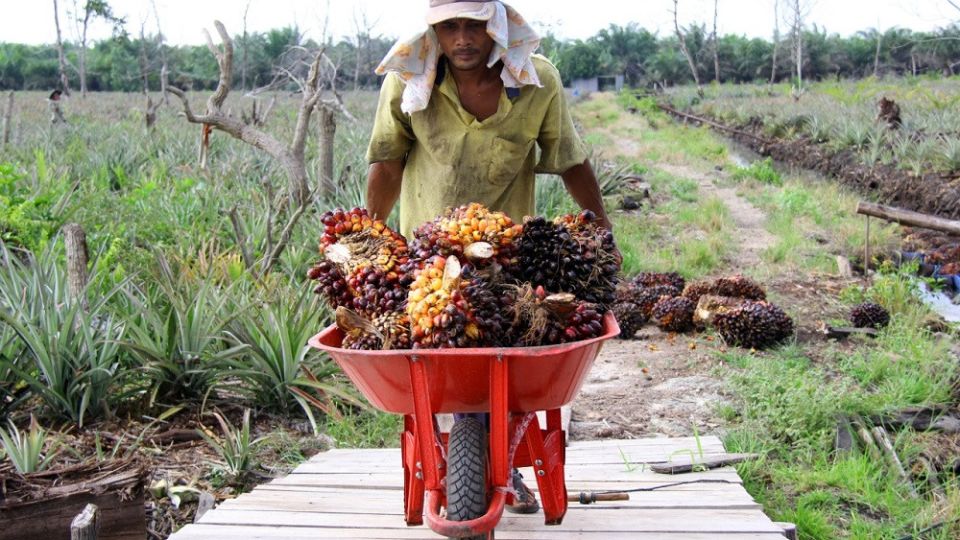September 16, 2022
JAKARTA – Indonesia’s import and export performance broke an all-time record in August due to the unprecedented volume of commodities sold, casting a positive outlook on the economy as the nation battles to subdue the effects of subsidized fuel price hikes.
Statistics Indonesia (BPS) reported on Thursday that August’s exports rose 30.15 percent year-on-year (yoy) to US$27.91 billion, topping the previous record of $27.32 billion in April. Crude palm oil (CPO), metals and electrical machinery mainly supported the export growth.
Imports, meanwhile, were up 32.81 percent yoy to $22.15 billion, supported by mechanical and electrical machinery, signifying a robust manufacturing industry as the domestic purchasing managers’ index (PMI) hit 51.7 points in the same month.
“The export performance of key commodities […] is still in good condition due to an increase in the volume sold, even as [commodity] prices fall,” BPS deputy head of distribution statistics and services Setianto said in a press briefing.
Consequently, Indonesia’s trade surplus in August managed to reach $5.76 billion, jumping 21 percent from the previous month’s $4.22 billion, while also marking 28 consecutive months of surplus.
Economists had their estimates beaten, with state-owned Bank Mandiri and financial research firm Moody’s Analytics predicting a $3.69 billion and $4.4 billion surplus, respectively.
Soaring CPO demand
BPS data also showed that the monthly export performance in August was boosted by CPO sales, which increased by 25.40 percent, followed by metals and electrical machinery by 14.38 percent and 21.16 percent, respectively.
Although global commodity prices have been lower than the all-time high prices of the previous month, Setianto added, the export volume of some key commodities skyrocketed drastically in August.
The volume of CPO exports jumped 55.77 percent month-to-month (mtm) to 3.6 million tons, the highest increase this year, although CPO prices fell by 10.15 percent yoy to $1,026 per ton.
Nominal-wise, CPO exports reached $3.7 billion in August, with demands mostly coming from India, China and Egypt.
The volume of coal exported, meanwhile, was 32.77 tons in August, an increase of 10.46 percent yoy, but fell by 2.03 percent mtm. In terms of value, coal exports reached $4.4 billion in the same month. Even as monthly prices fell by 5.35 percent, the commodity still saw a yearly price increase of 110.3 percent to $290 per ton.
Metals exports reached $2.3 billion, with a volume of 1.35 million tons, even though prices fell by 32.87 percent yoy to $108 per ton. Electronics, machinery and minerals also accounted for the majority of non-oil and gas imports.
Indonesian Chamber of Commerce and Industry (Kadin) economist David Sumual said that a huge increase in imports was to be expected since the economy had been growing steadily.
He also explained that the significant surge in CPO exports was boosted by the government’s export ban exemption, supplemented with a newly introduced export duty reduction that finally triggered global demand for the commodity.
“Indeed, commodity prices have tended to decline since June, but natural gas prices are still relatively high,” David told The Jakarta Post on Thursday.
Bank Mandiri commodity expert Ahmad Zuhdi Dwi Kusuma said the pattern seen in the now-lifted coal export ban was also visible in the CPO export ban exemption, where export volumes spiked a few months after the ban was lifted.
“Now is the time for CPO to recover its demand, because maybe the delivery contracts have started running again amid the low prices,” Ahmad told the Post on Thursday.
Another economist from the state-owned lender, Faisal Rachman, added that aside from the seasonal factor of Indian demand, foreign policy has played a part in the CPO export performance, as huge demand from China could be due to its commitment made in July to import a million tons of CPO from Indonesia.
As for coal, although winter in Europe could maintain the current trade balance surplus, exports could still shrink in terms of volume as EU countries would likely prefer to use their stockpile instead.
“There is a risk of a global recession that would put downward pressure on the price of commodities,” Faisal told the Post on Thursday.
Bank Mandiri forecast a surplus current account balance of 0.0 to 0.45 percent of gross domestic production in 2022.


